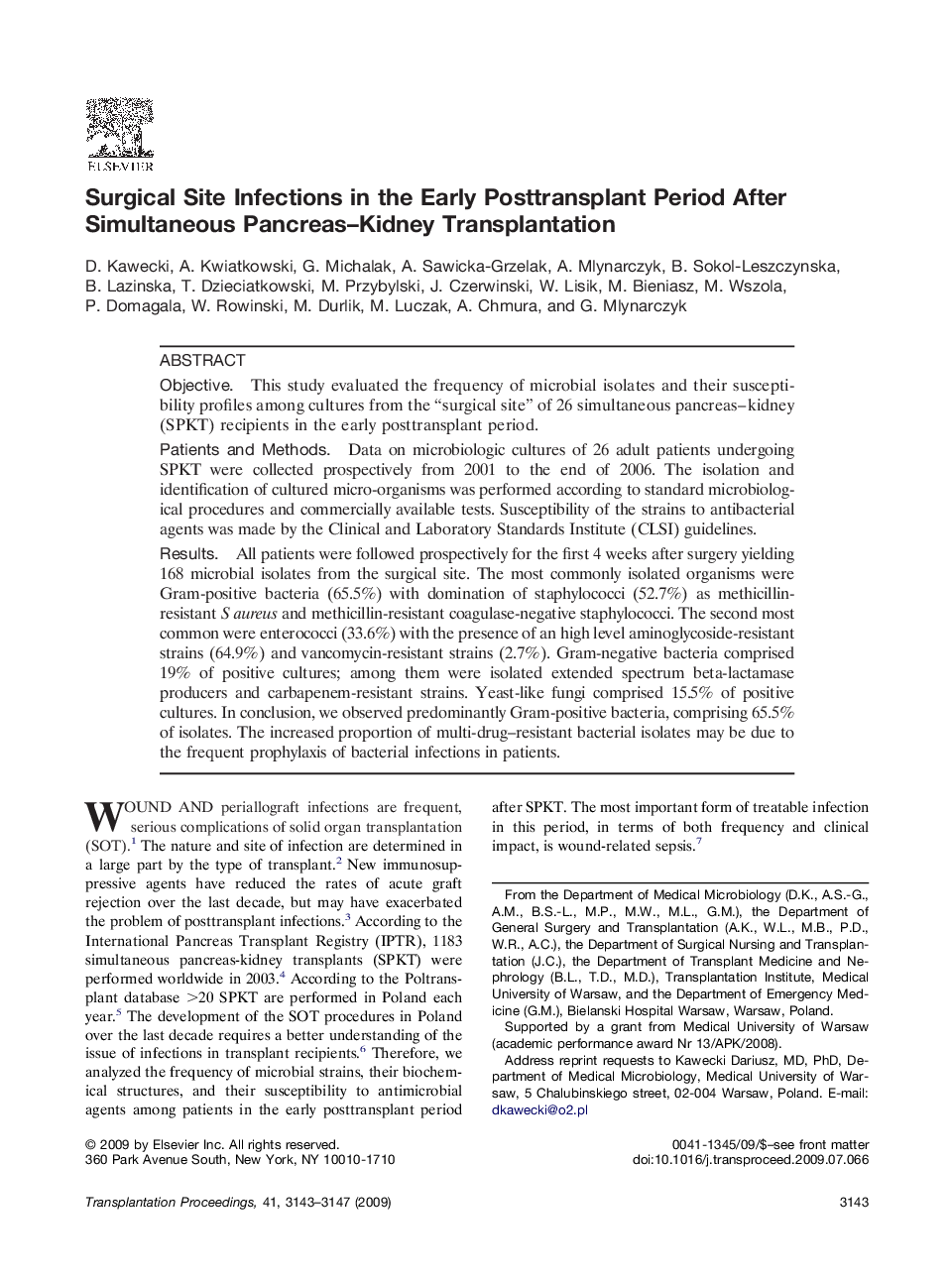| Article ID | Journal | Published Year | Pages | File Type |
|---|---|---|---|---|
| 4259009 | Transplantation Proceedings | 2009 | 5 Pages |
ObjectiveThis study evaluated the frequency of microbial isolates and their susceptibility profiles among cultures from the “surgical site” of 26 simultaneous pancreas–kidney (SPKT) recipients in the early posttransplant period.Patients and MethodsData on microbiologic cultures of 26 adult patients undergoing SPKT were collected prospectively from 2001 to the end of 2006. The isolation and identification of cultured micro-organisms was performed according to standard microbiological procedures and commercially available tests. Susceptibility of the strains to antibacterial agents was made by the Clinical and Laboratory Standards Institute (CLSI) guidelines.ResultsAll patients were followed prospectively for the first 4 weeks after surgery yielding 168 microbial isolates from the surgical site. The most commonly isolated organisms were Gram-positive bacteria (65.5%) with domination of staphylococci (52.7%) as methicillin-resistant S aureus and methicillin-resistant coagulase-negative staphylococci. The second most common were enterococci (33.6%) with the presence of an high level aminoglycoside-resistant strains (64.9%) and vancomycin-resistant strains (2.7%). Gram-negative bacteria comprised 19% of positive cultures; among them were isolated extended spectrum beta-lactamase producers and carbapenem-resistant strains. Yeast-like fungi comprised 15.5% of positive cultures. In conclusion, we observed predominantly Gram-positive bacteria, comprising 65.5% of isolates. The increased proportion of multi-drug–resistant bacterial isolates may be due to the frequent prophylaxis of bacterial infections in patients.
